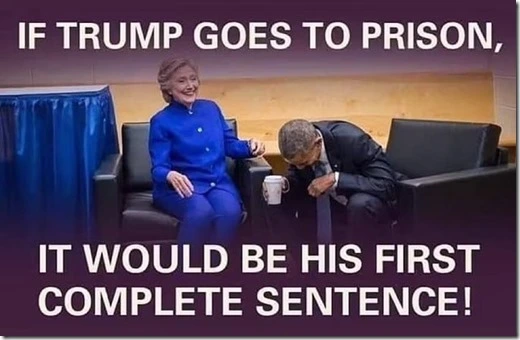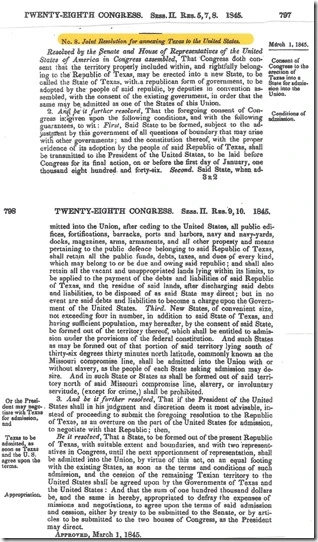It only lasted a moment. An instant, perhaps. But the spark grew into a happy realization: the U.S. House of Representatives can do something constructive after all, despite the mountain of evidence to the contrary it has piled up since January 2023. The headline on the email that popped in yesterday afternoon was “House approves $95 billion foreign aid bill” and it turns out that the speaker of the Republican-majority House accomplished it by working with Democrats to outvote the extreme MAGA wing of his own party.
It’s the sort of thing that almost never happens anymore. Dating back to the mid-1990s, Republican speakers have rarely allowed full floor votes on bills that weren’t already supported by a majority of their own party. Even in cases where a majority of the full House – Republicans and Democrats and independents – supports a proposal, no final vote is permitted; that keeps the opposition party from looking good by passing legislation with the help of a few renegades from the majority party. In recent years it has also allowed smaller groups of GOP members with extreme views to prevent more moderate members – in concert with the hated Democrats – from passing legislation that the extremists oppose. That has prevented a full House vote on, among many other things lately, a bill to send more American military assistance to Ukraine to support its war with Russia.
Part of the story here is what happened to change Speaker Mike Johnson’s mind on helping Ukraine.
When the House passed a $40 billion emergency funding bill for Ukraine in May 2022, support for Ukraine was largely still a bipartisan issue. But a little-known conservative congressman from Louisiana was one of the 57 Republicans to oppose it.
Now, just six months after his unlikely elevation to speaker of the House, Mike Johnson (R-La.) has pushed through a $60 billion effort to bolster’s Ukraine arsenal, along with funding for Israel and the Indo-Pacific.
The move marks a major victory and dramatic turnabout for the speaker who is trying to gain control of a bitterly divided Republican conference. The far right is fiercely against Ukraine aid — 112 Republicans, just over half of the conference, opposed it on the House floor Saturday and he had to rely on unanimous Democratic backing — and Johnson’s decision to greenlight a floor vote could come at great political cost. He could very well lose his job as speaker over it.
(snip)
“Look, history judges us for what we do,” said an emotional Johnson, holding back tears and with a quivering lip at a news conference last week in response to a question from The Washington Post. “This is a critical time right now, critical time on the world stage. I could make a selfish decision and do something that’s different, but I’m doing here what I believe to be the right thing.”
The Washington Post story goes on to explain Johnson’s evolution, which seems to boil down to the fact that he learned more about the situation and the stakes. Good on him, an extreme conservative and evangelical, for not turning  his back on real-world, secular evidence that he might have been wrong in May 2022; maybe there’s a bit of accepting the responsibility of being a leader at work here, too. “One Republican House member recalls: “I’ll never forget Johnson one time said, ‘I’ve gone from representing my district only to representing the entire [House] and the country.’ For someone to go from where he was to where he is now as quickly as he did … is remarkable.”
his back on real-world, secular evidence that he might have been wrong in May 2022; maybe there’s a bit of accepting the responsibility of being a leader at work here, too. “One Republican House member recalls: “I’ll never forget Johnson one time said, ‘I’ve gone from representing my district only to representing the entire [House] and the country.’ For someone to go from where he was to where he is now as quickly as he did … is remarkable.”
The other part of the story is the happy realization that brightened my afternoon: the evidence that the MAGA wing can be defeated, that the ignorant and selfish isolationists will not win if the rest of us stand up to them. When we have leaders who put the best interests of the whole country first, who are serious about supporting America’s role as a leader of the whole world, a rump faction cannot take control. And I do mean “rump.”
I also take this as an example of what the founders of Axios wrote about recently, the idea that American society and politics are not as irretrievably broken as it seems.
Here’s a wild thought experiment: What if we’ve been deceived into thinking we’re more divided, more dysfunctional and more defeated than we actually are?
Why it matters: Well, there’s compelling evidence we’ve been trapped in a reality distortion bubble — social media, cable TV and tribal political wars — long enough to warp our view of the reality around us.
The big picture: Yes, deep divisions exist on some topics. But on almost every topic of monthly outrage, it’s a fringe view — or example — amplified by the loudest voices on social media and politicians driving it.
- No, most Christians aren’t white Christian nationalists who see Donald Trump as a God-like figure. Most are ignoring politics and wrestling with their faith.
- No, most college professors aren’t trying to silence conservatives or turn kids into liberal activists. Most are teaching math, or physics, or biology.
- No, most kids don’t hate Israel and run around chanting, “From the river to the sea.” On most campuses, most of the time, students are doing what students have always done.
- No, most Republicans don’t want to ban all abortions starting at conception. No, most Democrats don’t want to allow them until birth.
- No, immigrants who are here illegally aren’t rushing to vote and commit crimes. Actual data show both rarely happen — even amid a genuine crisis at the border.
- No, most people aren’t fighting on X. Turns out, the vast majority of Americans never tweet at all.
- No, most people aren’t cheering insults on Fox News and MSNBC in the evening. Turns out, less than 2 percent of Americans are even watching.
Reality check: But our politics are hopelessly divided, Jim and Mike! You’re naive!
- Yes, current politics, and particularly the House, seem hopelessly dysfunctional. But this flows in part from majorities so narrow that fringe figures can hijack institutions, again particularly the House, and render them dysfunctional.
- The actual dysfunction runs much deeper for structural reasons, such as redistricting, low voter turnout in off-year elections and geographic sorting (Democrats in cities, Republicans in rural areas).
(snip)
This new poll by the AP and the NORC Center for Public Affairs Research shows a striking amount of agreement on some very big topics. Roughly 90% or more of Americans — Republicans and Democrats — agree the following rights and freedoms are extremely or very important to a functioning America:
- Right to vote.
- Right to equal protection under the law.
- Right to freedom of religion.
- Right to freedom of speech.
- Right to privacy.
Hell, almost 80% think the right to own a gun is important to protect.
The last Republican candidate for president to win a majority of the popular vote was George W. Bush in 2004…barely, at 50.7%. The last before that was the first George Bush, with more than 53% when he beat Michael Dukakis in 1988. The guy at the top of the GOP ticket in the last two elections won less than 47% of the popular vote each time; in 2020 one-third of the voting age population didn’t vote at all, and almost 40% blew off the election of 2016. Which means he was actually voted for by roughly 30% of Americans, at best: less than half of a bit more than half of the country. Thirty percent is not close to a majority. The MAGAs are loud and obnoxious, but they are not the voice of America. It’s time we remember that, and promise to do the thing that they fear the most: vote them out!




